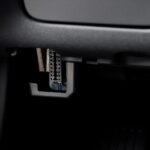Most South African Toyota Hilux owners are unaware that their vehicles might not be OBD2 compliant. This is because, unlike Europe and the USA, South Africa doesn’t legally require OBD2 compliance. This often leads to confusion when generic OBD2 scanners fail to connect. OBD2 (On-Board Diagnostics) is a standardized system for diagnosing vehicle problems, but non-compliant ECUs (Engine Control Units) require specialized diagnostic tools with proprietary software.
It’s important to understand that even on OBD2 compliant Hilux models, generic OBD2 scanners have limitations. They typically only read P0 codes, which are generic diagnostic trouble codes. Manufacturer-specific codes, such as P1 and P2 codes, often require more advanced scanners designed for Toyota vehicles. These scanners provide more comprehensive diagnostics and access to a wider range of data.
Fortunately, suitable OBD2 scanners for the Toyota Hilux are available both new and used. Prices vary depending on functionality, but finding a reliable scanner doesn’t require a significant investment. A knowledgeable salesperson can guide you towards a scanner that meets your specific needs and budget, rather than pushing the most expensive option. Alternatively, consider asking your local service shop to invest in a professional-grade diagnostic tool.
For older Hilux models with a 17-pin diagnostic connector, retrieving diagnostic codes involves bridging specific terminals (T1 and TE1) and observing the flashing check engine light on the dashboard. Flash code lists are readily available online to interpret these codes. However, attempting this on a 16-pin OBD2 connector is not recommended, as these systems typically don’t utilize flash codes.
Investing in the right Toyota Hilux Obd2 Scanner can save you time and money in the long run. Choose wisely and ensure it’s compatible with your specific model and year.

